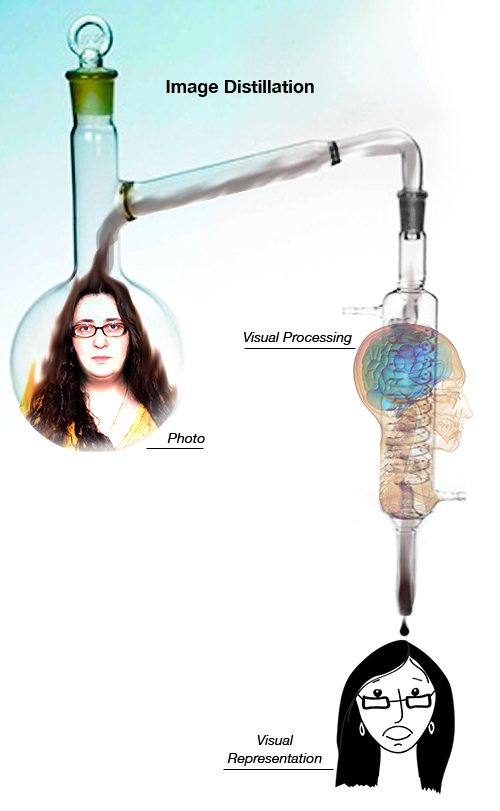Lehrer, J. (2010). “Depression’s Upside.” The New York Times. Retrieved on 29 June, 2010. http://www.nytimes.com/2010/02/28/magazine/28depression-t.html Summary: Depression is a disorder that has long been associated with the anguished artist who is fixated on his work. The gloomy state of mind may have an upside and, according to research by psychiatrists Andy Thomson and Paul Andrews, it is this ability to be more attentive to our problems. Approaching the issue of depression from an evolutionary perspective, they believe it is not likely for the brain to adapt “pointless programming bugs”. Unlike other mental illnesses which occur in small percentages of the population, approximately 7 percent of people are afflicted with depression every year. Despite, the evolutionary problem which results from lowering one’s sexual libido (and limiting the urge for reproduction), depression could be viewed as an adaptive to the stressors of one’s environment. Neuroscientists in China observed a spike in functional connectivity in the brain allowing depressed people to be more analytical and able to stay focused on a difficult problem longer. The research of psychologist Joe Forgas, found that depressed people were better at judging accuracy of rumors, less likely to stereotype strangers, and had better recall memory. Rumination, the…
Tag Archive for user errors
Cognitive Blindness, Contributor, Cultural Bias, Cultural Differences, Ethnographic & User Data, Interaction Design, Product Design Strategy, Users
Dressed to Distract
by Maria L •

Dowd, M., (2010). “Dressed to Distract.” NYTimes. Retrieved on July 1st, 2010, http://www.nytimes.com/2010/06/06/opinion/06dowd.html?_r=1&src=me&ref=homepage. Summary: Good looks are an advantage to any woman, man or child (and maybe even animal) in this world. Research tells us that babies will look longer at a good looking parent, and the “good looking” babies receive the same preferential treatment. The University of Alberta put together a research team to carry out a study in a supermarket to see if parents gave more attention to their more attractive children. Team leader, Dr Andrew Harrell, says that just as other animals do, “…we tend to parcel out our resources on the basis of value.” Debrahlee Lorenzana, a single mother of 33, was fired from Citibank in August for “looking too sexy”, she claims. According to her lawyer, the shape of her figure made the clothing she chose to wear too distracting for the males in her workplace. Lorenzana wasn’t like other women who chose to come to work in low-cut tops and tight pants, but because of her hourglass figure, any well tailored clothing she wore was “too distracting”. This specific case is interesting because normally the attractive people get better treatment and evaluations at work.…
Conceptual Design, Contributor, Errors, Ethnographic & User Data, Interaction Design, Scaffolding, Users
On ‘Feeling Grumpy Is “Good for You”‘
by Maria L •
BBC Staff (November 5th, 2009). “Feeling Grumpy Is «Good for You»” Retrieved 26th June, 2010. http://news.bbc.co.uk/2/hi/8339647.stm Summary: Being grumpy can enable us to access an entirely different range of skills apparently. According to Professor Joe Forgas, an Australian researcher at the University of New South Wales, «Negative moods trigger more attentive, careful thinking, paying greater attention to the external world». He conducted a series of experiments with a random group of people, asking them to watch a random collection of movies while simultaneously imagining an instance in their life that made them happy or sad, hence affecting their mood. He then ran a series of tests on the subjects, ranging from simple observational skills to judging the truth of myths and urban legends to see what effect the mood would have on their performance. The results supported Forgas’s theory:- those in a bad mood were able to communicate better and made fewer mistakes than those in a good mood. Test results also showed that sad people were better able to state their cases through written arguments, supporting the Professor’s theory that «whereas positive mood seems to promote creativity, flexibility, co-operation and reliance on mental shortcuts, negative moods trigger more attentive,…
Background Knowledge, Background Knowledge Errors, Cognitive Blindness, Contributor, Cultural Bias, Cultural Differences, Diagnostic Errors, Ethnographic & User Data, Interface Design, Mental Model Traps, Product Design Strategy, Users
A Curiously French Complaint
by Cecilia •
Kirby, E. (2008). “ A Curiously French Complaint,” BBC News. Retrieved on 2008/12/13. http://news.bbc.co.uk/go/pr/fr/-/2/hi/programmes/from_our_own_correspondent/7779126.stm Summary: This article focuses on the cultural differences between the French and British populations in regards to their medical care. Each culture has their own script of understanding, which people rely to set their expectations during a medical crisis. The author Emma experienced a cultural ‘shock’ during her first encounter with a French doctor due to her vastly different set of expectations. She visits a doctor in France due to the severity of a sore throat, where she is “diagnosed with a severe lung infection, mild asthma and had in my hand a prescription for six different types of medicine, an appointment at the local hospital’s radiology department and an emergency referral to a specialist in pulmonary disease (article).” Upon her return to Britain a few days later, she visits her family physician, who within a few minutes diagnoses her with only a ‘common cold.’ Her article then explains how the French expect a much more sever diagnosis to support their physical suffering. France is also the leading country of consumers who take prescription medications. While in England, there’s a more ‘keep a stiff upper lip’…
Background Knowledge, Background Knowledge Errors, Contributor
On ‘Mind Over Mass Media’ by Pinker
by peter.langmar •
Pinker, S. (2010). “Mind Over Mass Media.” The New Your Times Online. Retrieved on 23 June 2010: http://www.nytimes.com/2010/06/11/opinion/11Pinker.html Summary: Pinker’s article tries to prove the positive affect of new media technologies on mental development. Pinker observes, that the development of information technologies have always caused panic, but such scares usually are for no reasons. As an example, the author connects decreasing crime rate with emerging new technologies. In his understanding “[i]f electronic media were hazardous to intelligence, the quality of science would be plummeting” by scientist are using information technologies. By accepting, that “experience can change the brain” he argues, that new technology is not “a blob of clay pounded into shape by experience” and there are differences between the sorts of experiences. The article points, that the knowledge of accomplished people is one-sided. In Pinker’s opinion people are elementally changing by the usage of a certain technology. The article points that people need to use new technology with self-control. As the author concludes, that “the Internet and information technologies are helping us manage, search and retrieve our collective intellectual output [… and] technologies are the only things that will keep us smart”. Opinion: On one hand I can fully…
Cognitive Blindness, Contributor, Ethnographic & User Data, Interface Design
On Skin Color and Pain Empathy
by Sara.Rahiman •
Mann, D. (2010). “Skin Color Affects Ability to Empathize with Pain.” CNN.com. Retrieved on 23 June 2010: http://edition.cnn.com/2010/HEALTH/05/27/race.empathy/index.html?hpt=C2 An article written by Denise Mann, Skin color affects ability to empathize with pain”, raises some controversial questions around race. According to Mann’s article Neuroscience research has demonstrated that humans are hardwired to feel another person’s pain. For example when someone stumps their toe or fall, people reacts in ways as if they felt the other person’s pain. A study conducted in Italy argues that people feel less empathy for some that has different skin tone. Researchers have found that one reaction to another person’s pain can be racially subjective. Can race really play a role in pain empathy? The study monitored people’s nervous systems activity by tracking heart rates and sweat gland activity when they were watching clips of white and black hands being pricked by needles. The finding was that observers reacted more to the pain of someone with the same skin tone. The experiment was also used on a purple hand in which participants empathize with more than they did with a hand from another race. The author takes these claims and applies it to how medical practitioners may…
Background Knowledge, Background Knowledge Errors, Diagnostic Errors, Perception, Pipsqueak Articles, Users
Distilling Information
by Olga Werby •

When it comes to my students’ participation in this blog, it’s all about distilling information found in the news to something product designers in our midst would find useful, on a practical level. Consider the illustration below. We see a person’s face (mine in this case). We can describe some of the features. But what do we actually remember? Remembering complex visual information is hard—too many details. Recalling a drawing is easier. That’s because an artist already distilled the complexity into its essential parts—only those details that are required to remind us of a particular individual are included in the rendering. We are all pretty good at judging wether a portrait looks like the person it was intended to represent. We can quickly say if it does or if it doesn’t. But it would be difficult to explain what details in the illustration make the likeness or what’s missing from the drawing that didn’t hit its mark. Distillation of information is hard. Some people are good at it, some are not. It’s an acquired skill. And each category (e.g. sensory like visual, audio, tactile or knowledge-based like physics, economics, biology) requires its own training and its own set of talents.…
